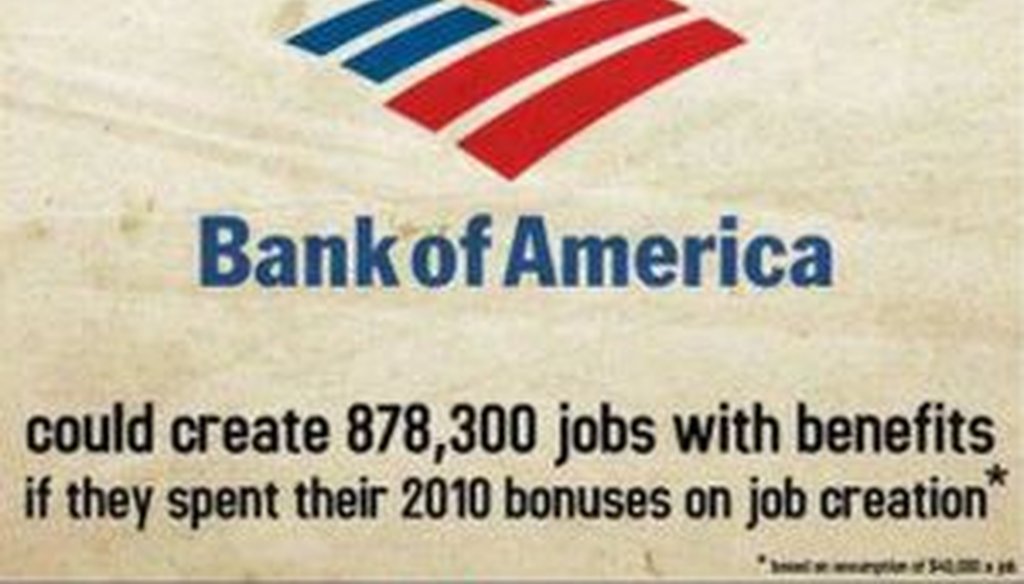Stand up for the facts!
Our only agenda is to publish the truth so you can be an informed participant in democracy.
We need your help.
I would like to contribute

This Facebook post sounded too good to be true. It was.
In the past two weeks, more than 3,800 people on Facebook have shared a list called "10 Illegal Alien Facts," which includes a claim that more than 43 percent of food stamps go to illegal immigrants.
Except it’s not a fact at all. PolitiFact found it stretches the truth into the realm of a mathematical impossibility and rated it Pants on Fire. Two other claims on the list, which suggest illegal immigrants are getting government handouts, earned a Mostly False and a Pants on Fire.
The spread of "10 Illegal Alien Facts" shows how Facebook has become the new town square in American politics, a place where individuals and groups can hang their political posters. Call it JPEG propaganda -- image files such as JPEGs that people post on their Facebook walls.
Unlike chain emails, which multiplied during the 2008 campaign and were often a medium for conspiracy theories, the Facebook posters feature everything from individual rants to calculated messages from large industry groups. They’re quickly developing a distinctive voice and style.
Last week, a female state representative in Michigan was barred from the House floor after saying "vagina" during debate over an abortion bill. A Facebook group called "A Girl's Guide to Taking Over the World" quickly created a poster that had "Vagina" in huge letters, and said, "Because apparently, saying that word in the Michigan State House of Representatives can get you a two-day ban from speaking on the floor." Democrats and Republicans had differing opinions on the reason for the ban, but the wording of the Facebook post was careful enough to merit a Mostly True rating.
The American Energy Alliance, an advocacy group funded by oil and natural gas interests, has four active Facebook pages, with lots of charts and posters that supporters are encouraged to post on their own Facebook walls. Some examples:
* A $100 bill in which Benjamin Franklin’s face is replaced with a logo for the EPA.
* An overhead illustration of a baseball park, identifying products made with oil and gas.
* An iPhone, with the words "Made with Oil" on the screen.
A simple graphic headlined "EPA regulations," with a down arrow on jobs and an up arrow on energy costs grabbed nearly 4,000 likes and was shared by more than 800 people. A simple photo of gas prices near $5 a gallon with the message "LIKE if you think we should produce more American oil!" picked up almost 9,000 likes, and 600 people commented on what they’re paying at the pump.
Benjamin Cole, a spokesman for the American Energy Alliance, says the Facebook posters are effective because they’re interactive or have compelling graphics. "That’s just basic advertising," he said.
Some were produced in-house, Cole said, while others are the products of paid advertising campaigns. Either way, creating and disseminating them is a "microscopic fraction of the cost" of the millions the group spent on television ads this spring.
"This is cheap," Cole said. "The pages are free. You can choose to pay for advertising on Facebook, but it’s not essential because the higher your interaction rate the more likely you’re going to show up on somebody else’s page. It’s like mice reproducing in a lab."
A catalogue of images
They’re simple and blunt. Some are inspiring, but more often they're designed to stir outrage.
They cover issues across the spectrum: abortion, the environment, gay rights, the culture wars, energy production, food production, war, peace, guns, education, the economy.
Some are words only, like virtual bumper stickers. "I’m already against the next war," offers one from the Occupy Posters Facebook page.
But images are powerful tools and many groups have stocked their Facebook pages with posters that can be plucked -- for free -- by their supporters. Occupy Posters couples gas pumps, U.S. maps, scales out of balance, even a drawing of a uterus with statistics and punchy taglines. Some posts simply juxtapose photos of candidates with quotes from their speeches.
Mitt Romney’s Facebook page contains mostly videos and photos from his campaign rallies that rarely weave in factual claims. Same goes for his Tumblr, a blogging and photo-sharing site. The Obama for America campaign, however, is churning out shareable infographics, such as this one using statistics about public opinion of Republicans. In all cases, users can simply repost them, ensuring more eyes see the message.
Nicer than chain emails
In 2008, many people relied on a different form of social media to spread political messages: chain emails. They came largely from the right with suggestions that Barack Obama was unpatriotic and had a suspicious background. One even claimed he fit the Bible's description of the Anti-Christ, a claim we rated Pants on Fire.
Many chain emails have circulated for years even though they have a dreadful record for accuracy. More than half of the 124 chain emails tested on the Truth-O-Meter earned Pants on Fire ratings.
By contrast, Facebook posters come from both ends of the political spectrum and emerge almost as immediately as the issues they reflect.
"They’re often quite up to the minute," said Brendan Nyhan, a professor at Dartmouth College who studies how political messages influence people.
He says Facebook posts have something else chain email lacks -- credibility.
"Chain emails have become stigmatized as a form of communication," said Nyhan. "So I would say people are more circumspect about forwarding things in email because there have been so many crackpot theories in these things. I think many people who wouldn’t forward a chain email would click the (share button) on Facebook. It’s a lower form of commitment."
(The PolitiFact record for Facebook posts is mixed. Of the 14 we've checked, six have earned a rating of False or Pants on Fire.)
On Facebook, people are also more careful about who they might offend -- relatives, kids’ teachers, fellow church members.
While chain emails often take on a dark, conspiratorial tenor, Facebook posts aren’t meant to stay out of the mainstream. They’re intended to spread what Ben Smith, editor of the news site BuzzFeed, calls "partisan, shareable content."
Said Cole, from the energy alliance, "You can proliferate your Facebook presence. It’s really only limited by your ability to manage it."
Our Sources
See previous fact-checks






















































